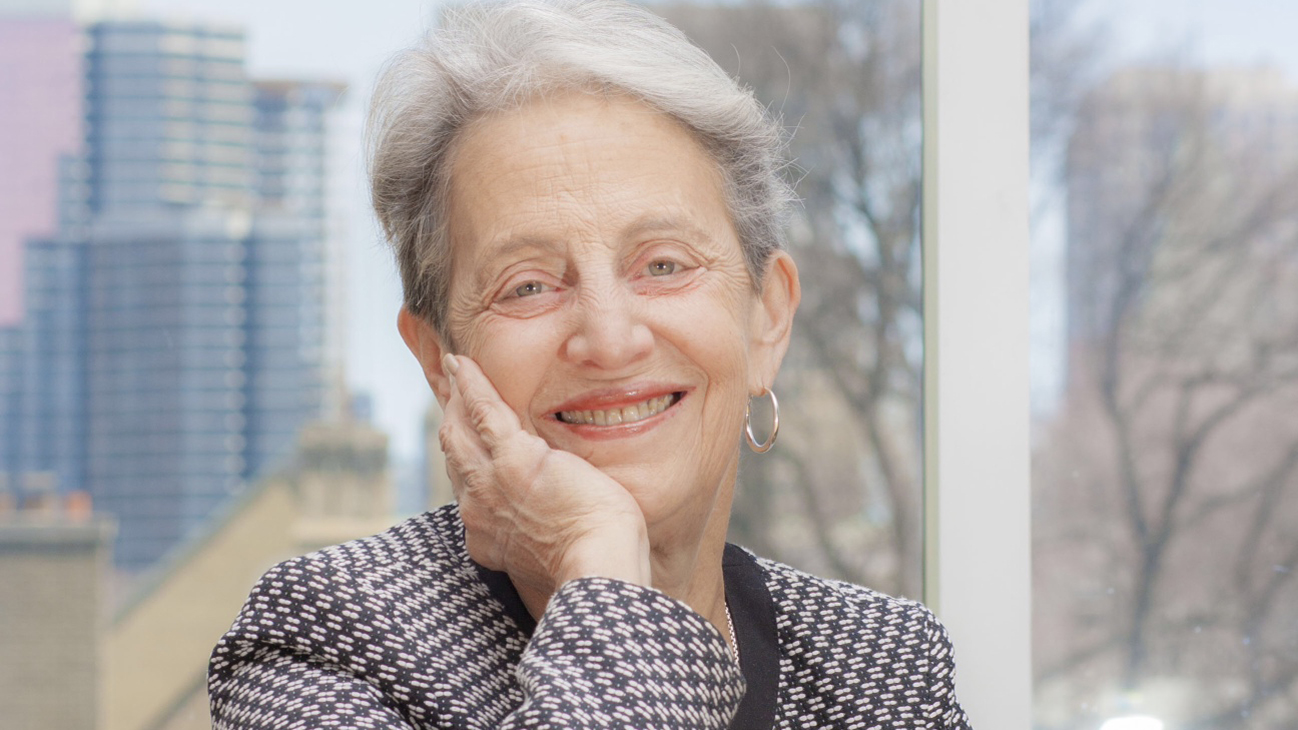Whether it’s economics, geopolitics, or international security and terrorism, few people have a better understanding of global issues than Professor Janice Gross Stein. The Founding Director of the Munk School of Global Affairs at the University of Toronto, Professor Stein’s dynamic presentations provide a unique perspective into what’s really happening around the world—from China to Russia to the Middle East and Europe—and what it means to her audiences. Professor Stein’s presentations not only connect the dots regarding key events, but provide a look at where things are headed, and where the potential dangers and opportunities may lie. Both realistic and hopeful, she leaves her audiences with a better understanding of current global issues, and a clear, compelling vision of the future. The Globe and Mail asked her some thought-provoking questions recently:
What keeps you awake at night?
Canadians aren’t change leaders. We’re deeply, deeply risk averse. If you give us a choice, we prefer the status quo, because we think it’s less risky. What we don’t understand is the cost of inaction. Most of our public-sector institutions are buried in process. In the last year, minute scandals about minute amounts of money have consumed the public agenda. It’s all about the evaluation of process as opposed to a conversation about what we want to accomplish together. We don’t use process to enable, we use it to obstruct. Process also drives you to the middle. If you’re unwilling to offend anybody, you don’t get imaginative, innovative solutions. Ultimately, that approach could degrade our quality of life.
The corporate sector is the least risk averse. It has a better-developed sense of risk and understands that the status quo is not sustainable. If you look at where real environmental leadership is coming from in this country, it’s the private sector – the insurance industry and the energy sector. As soon as the insurance industry starts to create a marketplace around environmental risk, we’re going to move on this issue much more quickly than we are now. The energy sector is the one saying that we need environmentally responsible policy, because it’s overwhelmingly in its interest.
We need more entrepreneurial spirit in this country, most of all in the public and not-for-profit sectors. We have to look beyond government for doers. The not-for-profit sector is getting more and more entrepreneurial all the time. Part of what is driving its innovative activities is that there is so little money and so much ambition. Under these circumstances, you’re driven to find new ways to do things. The good news is that we have a greater capacity for self-organization in this country than we give ourselves credit for.
What energizes you?
Young people – I’ve spent my life working with young people, and this is the most adventurous, clear-eyed, hard-nosed generation I’ve met. They depend on themselves, are single-minded in their desire to get the best skills, have a global view, and are not risk averse. Our students in the Munk School of Global Affairs are starting start-ups. They have the capacity and the confidence to move out from under the big, cumbersome institutions.
If things turn out badly over the next 20 years, what would have happened?
We would have failed to keep our young people. They will go where the work is interesting and challenging, and where they can contribute. That will be a huge loss. If we don’t reorient our institutions to make them hospitable to members of this generation, they will just walk right around them and do other things. Our institutions will atrophy, because they won’t have people to shake things up and say, “No, we’re not going to do it this way any more.”
We will also fail if we do not recover from our terminal illness of smugness and self-satisfaction. Otherwise, we are not going to push ourselves hard enough and will ultimately slide into mind-numbing mediocrity. The rest of the world is changing faster than we are. Look at what China was 50 years ago and what China is today – unimaginable. Look at the social experiments going on in Brazil. We have a lot to learn. What’s missing here is urgency. Comfort is our biggest enemy. The leaders of our established institutions have to wake up and understand what is going on in the world.
Monica Pohlman/The Globe and Mail/February, 2015

